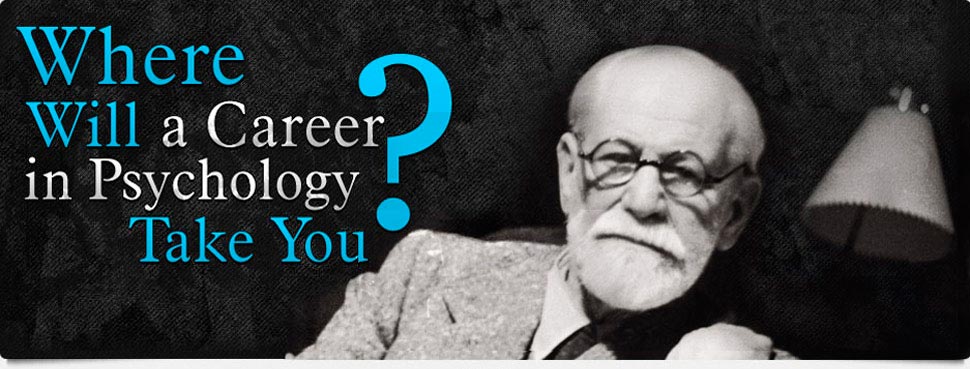Career Paths
A Career in Psychology
Interest in psychology has grown due to its broad applicability in various careers. It enhances critical thinking, communication, and empathy, making graduates adaptable in fields like counseling, education, law enforcement, marketing, and healthcare. Psychology degrees in Kenya offer various programs, with advanced training available in clinical, counseling, educational, and forensic psychology.

Interest in studying psychology has grown enormously in recent years. Not only is psychology a fascinating subject to study, but it also prepares graduates for a very wide range of careers. Some of these have obvious connections with psychology and are listed below.
But psychology also provides useful training for a much wider range of career options. These include market research, social work, teaching, nursing, advertising, sales, media and broadcasting, personnel management and even the police and the Armed Forces.
Why Study Psychology?
- Critical Thinking Skills: Psychology helps you develop strong critical thinking and problem-solving skills.
- Communication Skills: You'll learn to communicate effectively, both verbally and in writing.
- Empathy and Understanding: Psychology fosters empathy and understanding of human behavior, making you a more compassionate and effective communicator.
- Adaptability: A psychology degree equips you with the ability to adapt to different situations and challenges.
By studying psychology, you'll gain a deeper understanding of human behavior, which can be applied to a wide range of careers. Whether you're interested in helping people, conducting research, or working in business, a psychology degree can provide you with a solid foundation for success.
A university degree is often just the starting point for further training in a particular branch of psychology. Some of the available psychology degree programs in Kenya include:
Degree Programs
Bachelor of Arts Counselling Psychology - Kenyatta University
Bachelor of Arts in Psychology - United States International University Africa (USIU-A)
Bachelor of Arts in Psychology and Counselling - Africa International University
Masters Programs
Master of Arts in Clinical Psychology - United States International University Africa (USIU-A)
Master of Education in Guidance and Counseling - Kenya Methodist University
Branches of Psychology
- Clinical Psychology: Training in clinical psychology usually takes place after students have obtained relevant work experience in clinical psychology. Students then undertake a three-year postgraduate training course.
- Counselling Psychology: Counselling psychologists help people cope with difficult life events such as divorce, bereavement and unemployment.
- There are numerous different approaches to counselling and training requirements vary accordingly.
- Educational Psychology: Educational psychology is closely allied to developmental psychology. Educational psychologists work in schools, together with teachers and parents, to enhance children's learning and development, especially in cases of behavioural and learning difficulties. Training involves an initial degree in psychology, a teaching qualification and at least 2 years experience of teaching in schools, before starting postgraduate training in educational psychology.
- Forensic Psychology: Forensic psychologists work in the field of criminal and civil justice, providing support to the police, the prison and probation services, the National Health Service and the Social Services. Postgraduate courses in forensic psychology typically require one year of full-time study.
- Health Psychology: Health psychologists help people cope better with illness and treatment. They are interested in how people perceive illness and adapt to it, how they interact with health care professionals, and how they cope with pain and different treatment regimes. Postgraduate training typically requires one year of full-time study.
Traditional Psychology Careers:
- Clinical Psychologist: Diagnoses and treats mental, emotional, and behavioral disorders.
- Counseling Psychologist: Provides therapy and counseling to individuals and groups.
- School Psychologist: Works with students to address their academic, social, and emotional needs.
- Industrial-Organizational Psychologist: Applies psychological principles to workplace settings, focusing on issues such as employee motivation, job satisfaction, and organizational behavior.
- Forensic Psychologist: Applies psychological principles to legal issues, such as criminal profiling, witness testimony, and jury selection.
Non-Traditional Psychology Careers:
- Human Resources: Uses psychological knowledge to recruit, hire, and train employees, as well as address workplace issues.
- Marketing and Advertising: Analyzes consumer behavior and develops effective marketing strategies.
- Sales: Utilizes psychological techniques to persuade and influence potential customers.
- Education: Teaches psychology courses at the college level or works as a school counselor or educational consultant.
- Health Care: Works as a health psychologist to help patients manage stress, pain, and chronic illness.
- Law Enforcement: Profiles criminals, assesses witness credibility, and provides psychological support to law enforcement officers.
- Media and Journalism: Uses psychological insights to create compelling stories and understand audience behavior.
By studying psychology, you will gain a deeper understanding of human behavior, which can be applied to a wide range of careers. Whether you are interested in helping people, conducting research, or working in business, a psychology degree can provide you with a solid foundation for success.











